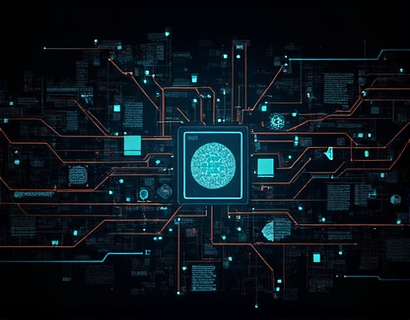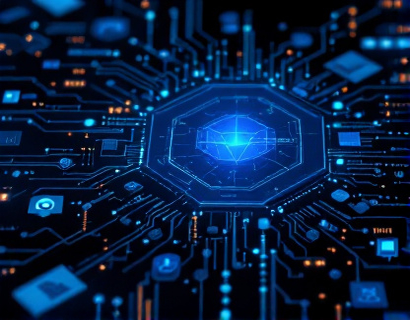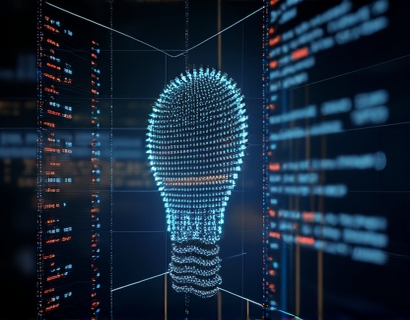Revolutionizing Productivity: The Synergy of AI and Cryptocurrency
The intersection of artificial intelligence (AI) and cryptocurrency is giving rise to a new era of digital innovation, one that promises to revolutionize productivity and redefine how we approach daily tasks. This transformative blend is not just a buzzword but a tangible force reshaping workflows across various industries. For tech innovators and early adopters, understanding this synergy is crucial to staying ahead in a rapidly evolving digital landscape.
The integration of AI and cryptocurrency is creating advanced digital solutions that enhance efficiency, security, and accessibility. AI's ability to process vast amounts of data quickly and accurately, combined with the decentralized and secure nature of cryptocurrency, is leading to breakthroughs in areas such as smart contracts, decentralized applications (dApps), and blockchain-based productivity tools.
Smart Contracts: Automating Agreements
One of the most significant applications of AI and cryptocurrency is in the realm of smart contracts. Smart contracts are self-executing contracts with the terms of the agreement directly written into code. When conditions are met, the contract automatically executes the agreed-upon actions. AI enhances this process by analyzing data and predicting outcomes, ensuring that smart contracts are not only executed but also optimized for efficiency and compliance.
For instance, in supply chain management, smart contracts can automate payments and verify the authenticity of goods. AI algorithms can monitor real-time data from sensors and other sources to ensure that all conditions are met before triggering a payment. This reduces the need for intermediaries, speeds up transactions, and minimizes the risk of fraud.
Decentralized Applications (dApps): Empowering Users
Decentralized applications, or dApps, are another area where AI and cryptocurrency are converging to enhance productivity. Unlike traditional applications that rely on centralized servers, dApps are built on blockchain networks, making them more secure and resistant to censorship. AI integrates with dApps to provide intelligent and adaptive user experiences.
For example, AI-powered dApps can offer personalized recommendations based on user behavior and preferences. In project management dApps, AI can predict project timelines, allocate resources more efficiently, and even identify potential bottlenecks before they occur. This level of automation and insight empowers users to focus on high-value tasks while leaving routine operations to the AI.
Blockchain-Based Productivity Tools
Blockchain technology, when combined with AI, is giving birth to a new generation of productivity tools. These tools leverage the immutable and transparent nature of blockchain to ensure data integrity and security. AI enhances these tools by providing advanced analytics and predictive insights.
Consider a cloud storage solution built on blockchain. AI can optimize storage by analyzing usage patterns and automatically archiving less frequently accessed files. It can also ensure that sensitive data is encrypted and only accessible to authorized users. The transparency of blockchain ensures that all transactions and access logs are immutable, providing a high level of trust and accountability.
Enhancing Collaboration with AI and Cryptocurrency
Collaboration is a critical aspect of modern productivity, and the combination of AI and cryptocurrency is transforming how teams work together. Blockchain-based platforms can facilitate secure and transparent collaboration, while AI tools can streamline communication and task management.
For instance, a blockchain-based collaboration platform can use AI to manage access rights, ensuring that only authorized team members can view or edit specific documents. AI chatbots can assist in scheduling meetings, summarizing discussions, and tracking task progress. This not only improves efficiency but also builds trust among team members, knowing that all interactions are recorded and verifiable.
Security and Privacy: A Core Benefit
Security and privacy are paramount in any digital solution, and the combination of AI and cryptocurrency addresses these concerns effectively. Blockchain's decentralized nature eliminates single points of failure, making it highly resistant to cyber attacks. AI further enhances security by detecting and mitigating threats in real-time.
AI-driven security systems can monitor network activity, identify anomalies, and respond to potential threats before they cause damage. In the context of cryptocurrency, AI can help prevent fraudulent transactions and ensure that smart contracts are executed as intended. This dual layer of security provides peace of mind for users, allowing them to focus on their work without worrying about data breaches or unauthorized access.
Accessibility and Inclusivity
The synergy of AI and cryptocurrency is also making digital tools more accessible and inclusive. Blockchain-based identity verification systems, powered by AI, can provide secure and decentralized identity management. This is particularly beneficial for individuals in regions with limited access to traditional identity documents.
AI-powered translation and communication tools can break language barriers, enabling global collaboration. For example, AI can translate real-time communications within a blockchain-based project management platform, ensuring that team members from different parts of the world can work seamlessly together. This inclusivity fosters a more diverse and innovative global workforce.
Challenges and Considerations
While the potential of AI and cryptocurrency in enhancing productivity is vast, there are challenges and considerations to keep in mind. Regulatory frameworks are still evolving, and compliance can be complex. Additionally, the technical expertise required to implement these solutions can be a barrier for some organizations.
However, as the ecosystem matures, more user-friendly tools and services will emerge, making it easier for tech innovators and early adopters to leverage these technologies. Education and community support will play a crucial role in overcoming these challenges, ensuring that the benefits of AI and cryptocurrency are accessible to a broader audience.
Conclusion
The convergence of AI and cryptocurrency is not just a technological trend but a fundamental shift in how we approach productivity and digital tasks. For tech innovators and early adopters, embracing this synergy can lead to significant advancements in efficiency, security, and collaboration. As the landscape continues to evolve, staying informed and adaptable will be key to harnessing the full potential of these transformative technologies.










































